Mar-Ferans - The Unclean
Despise the Heretic but not the Unbeliever, for the former has seen the truth but denies, while the latter does not yet know.
In the modern age, few Ferans remember the time before their way was guided by the Trinity. Those who do remember see it either as a dark age of suffering or a wicked time of excess. Neither is correct, but who can really tell when the gulf between ages extends to over two and a half millennia?
"They fight with heavy horse and armoured men, the most elite of which are known as "hrigt" in their coarse sounding language. Men dominate their culture in every aspect other than the family home, where the woman has unquestioned authority. One can find them everywhere in the south as traders and mercenaries, for their want for gold is only beaten by their lust for battle."
A Name Tells a Tale
Excerpt from "On the Origin of Names. Etymology of the Modern World." by Maeve Kane Karva "The only thing that can be said with certainty about the word "Feran" is that it was already present when its bearers entered the Known World in the early 8th century of the Dawn Age. Fragments of pre-collapse Onadaran documents mention the "Ferandi" among the tribes known to invade the south at that time. What it means is a much more difficult question, however. The version translating it to mean "Men of Clay" is a modern one, barely five centuries old. Of similarly young age is the name "Mar-Ferans" which roughly translates to "Marred Men", a clear derogatory judgement of a people that lived before the light of the Trinity was bestowed on them."A Life of Dread
Chapter Four of "An Account of Feran History" by Ar-Tyne Arrik Marten "Before the Three, there was the Rule of Thanes, a time when all of Ferandom was subject and serf to the will of petty warlords who styled themselves in the decadent regalia of southern dynasts. Feran fought Feran, either by the will of their own leaders or of foreign lords, and many a life was ended in blood." "Weakened and divided, they were pushed to the coast by savage steppe horseman and bronze-clad phalangites from the highlands. The Great Tyrant did not deem them worthy of his attention, but the King of Chains who followed in his wake sought to bring them to their knees. And Ferankind nearly broke under his power." While most accounts of early Feran history follow this often deprecating and moralizing tone, they tend to retain a mostly accurate core. The Mar-Ferans seem to have lacked the strength of other tribes in Anidara, and by 800 DA, they found themselves pushed out of the central plain to a long, narrow strip of land on the northern coast.Uncultured Barbarians
Fragment Seven of the Nasandara/Chronicle of the Elamite People - "Concerning Foreigners" "About three leagues north of the great capital, where the mountains rise to shield the river valley from the tempestuous sea, lies the land of Kesakani. Here live the Ferandi, a people of great barbarity yet with a sliver of honour."Tribal
"They live in tribes, of which there are a great number, and each is ruled by a chieftain, which they call Thane. It is not a hereditary position, and the position can often switch between holders depending on need. A son may only succeed the father if a gathering of the experienced men of the tribe permits it. Once a Thane is chosen their rule is not absolute and incompetence may quickly cause them to be overthrown."
"They live in tribes, of which there are a great number, and each is ruled by a chieftain, which they call Thane. It is not a hereditary position, and the position can often switch between holders depending on need. A son may only succeed the father if a gathering of the experienced men of the tribe permits it. Once a Thane is chosen their rule is not absolute and incompetence may quickly cause them to be overthrown."
Honour Bound
"Honour is valued greatly among the Ferandi and may often form the basis of one's social rank. It is mostly earned through birth, prowess in any given field and deeds done in the name of the tribe. One born to a serf or slave will start with none at all and have to work hard to rise. But if they do, then there is nothing stopping a serf from becoming a respected leader of the tribe. Such are the contradictions of the Ferandi people."
"Honour is valued greatly among the Ferandi and may often form the basis of one's social rank. It is mostly earned through birth, prowess in any given field and deeds done in the name of the tribe. One born to a serf or slave will start with none at all and have to work hard to rise. But if they do, then there is nothing stopping a serf from becoming a respected leader of the tribe. Such are the contradictions of the Ferandi people."
Strange Gods
"The Ferandi are known as "Godwanderers" among the other people of the south as they appear to constantly switch allegiance between pantheons. However, the way they do so is rather interesting. For the Ferandi's own gods seem to have no true form and may appear differently to each worshipper. As such, they will turn to another faith in the belief that it is merely a different form of whatever god they worship, even combining pantheons."
"The Ferandi are known as "Godwanderers" among the other people of the south as they appear to constantly switch allegiance between pantheons. However, the way they do so is rather interesting. For the Ferandi's own gods seem to have no true form and may appear differently to each worshipper. As such, they will turn to another faith in the belief that it is merely a different form of whatever god they worship, even combining pantheons."
On the Brink
In the early 9th century DA, the Feran people faced certain doom. Lacking strength, they had been pushed to a small strip of Anidara's northern coast, and their growing population soon threatened to consume much of what they could produce. Worse, the situation in the south had changed drastically. The cold apathy of Argead kings had given way to the greedy fury of the Odokari, and one among them, a man named Peithon, despised Ferans more than anything. His stranglehold on Feran lands grew by the day and threatened to bleed them dry. Riven internally, with civil war a constant, the tribes were in no position to oppose them. Only a miracle could save them. And on a morning in early 833 DA, said miracle stepped off a boat and into Feran land...Hard to believe that a single ship caused all of this trouble. The Feran problem could have solved itself without one drop of Vardanian blood being spillt...what a dream.
Related Locations
There is a notable silence in Feran sources concerning their activities in Anidara. Few sources mention these early years, and almost all deal with the years immediately preceding the arrival of the Prophet. Part of it can simply be explained by the sheer age of these events or the loss of sources due to neglect and calamity. But much of it seems intentional.
Why the Feran people, infamous for the pride they hold in the accounts of their achievement, would omitt their participation in the conquest of Anidara's old order, their battles with the powerful Kidarite Empire and city-states of ancient Themyra remains a mystery. Part of it could be that these deeds are seen as shameful as they occurred before the Feran people embraced the light of the Trinity. To venerate such events would not bring glory to the Three that are One but its enemies.
Fluent Pantheon
Sources remain similarly silent about the old faith of the Mar-Ferans. Only a few mentions regarding the "phantom demons of old" remain in the scripture, and any Archivar dealing with matters of faith will be hard pressed to make any kind of assessment. Anidaran sources still retain some mention, and from them the picture of a fluent pantheon emerges.
Which god was worshiped could change with the month, and the Mar-Ferans appear to have often combined various different faiths into one. One particularly interesting example retained is the case of the gods Andraste and Gestis. The former, a vicious goddess of nature and arch-enemy of the Themyran pantheon, became a protector of farmers and poor. Gestis, a Elamite god usually associated with the art of healing, became a monster bent turning humanity into his wicked creations.
Face suffering, but do not embrace it. Fight it and overcome. Only such effort may bring the favour of the Father.
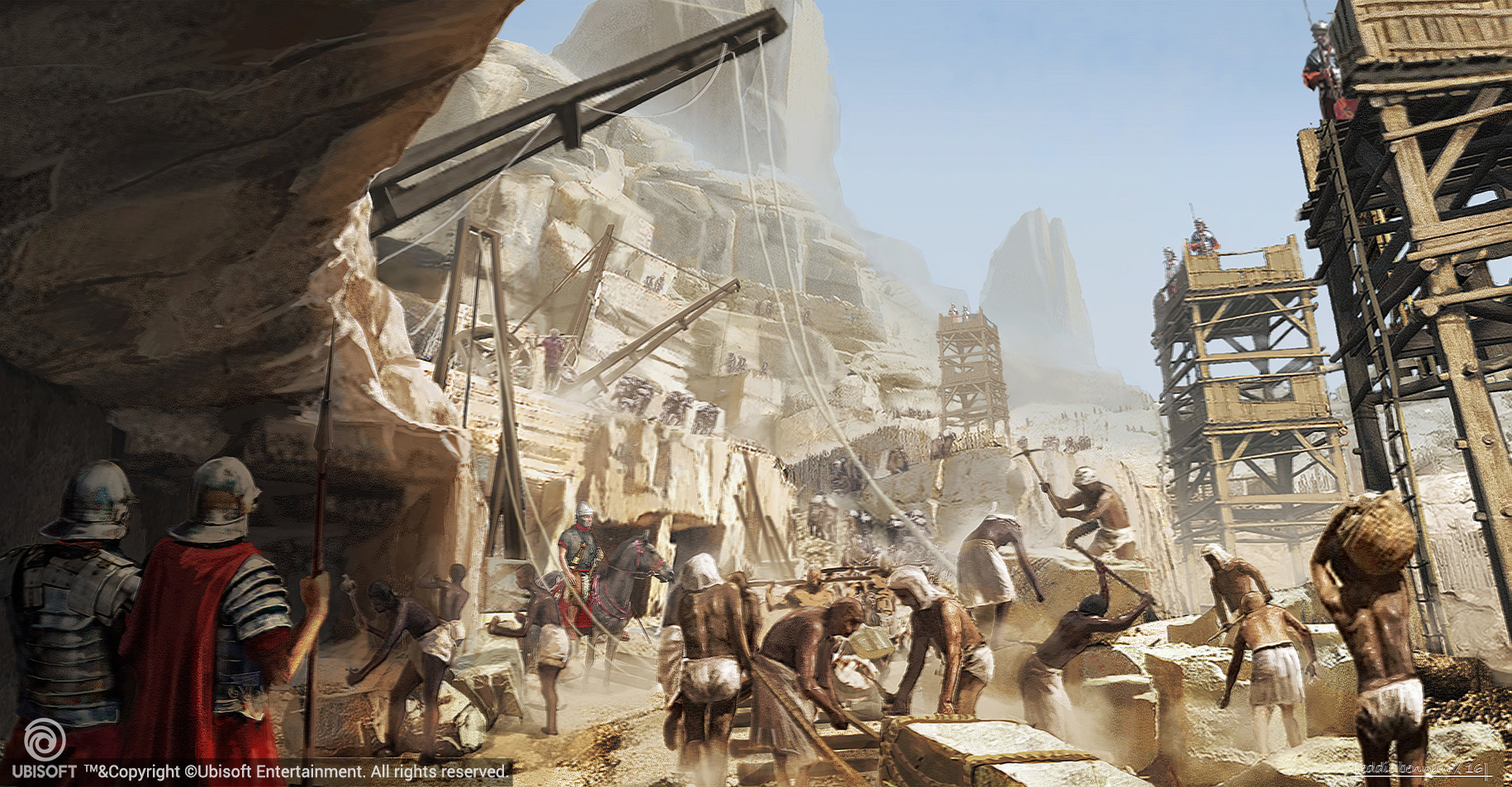
by Eddie Bennun
Remove these ads. Join the Worldbuilders Guild

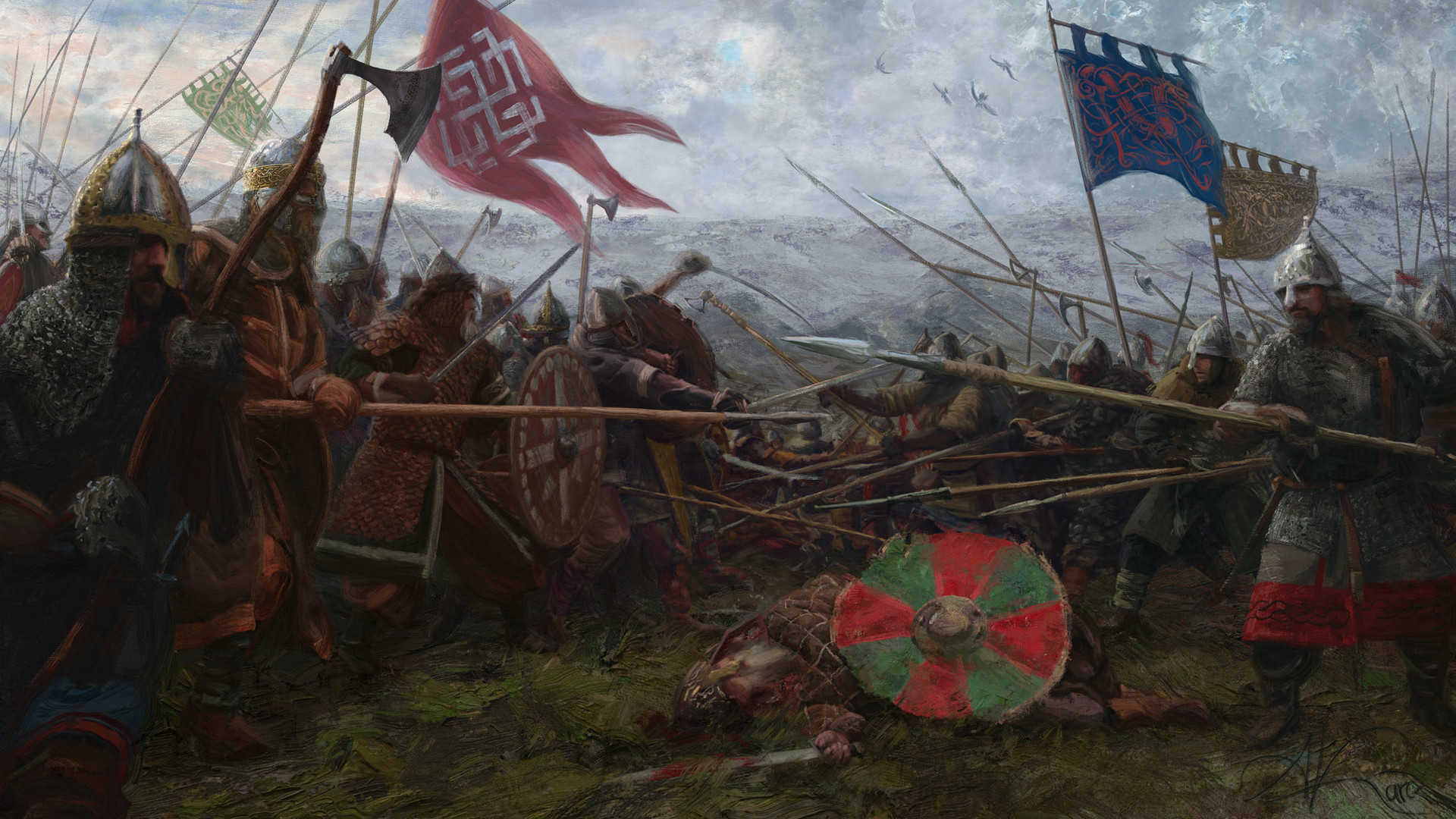
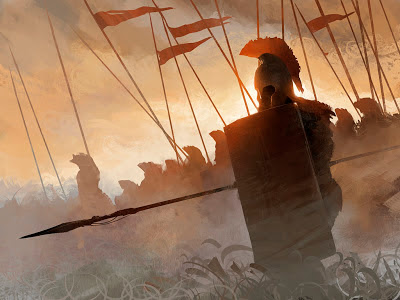
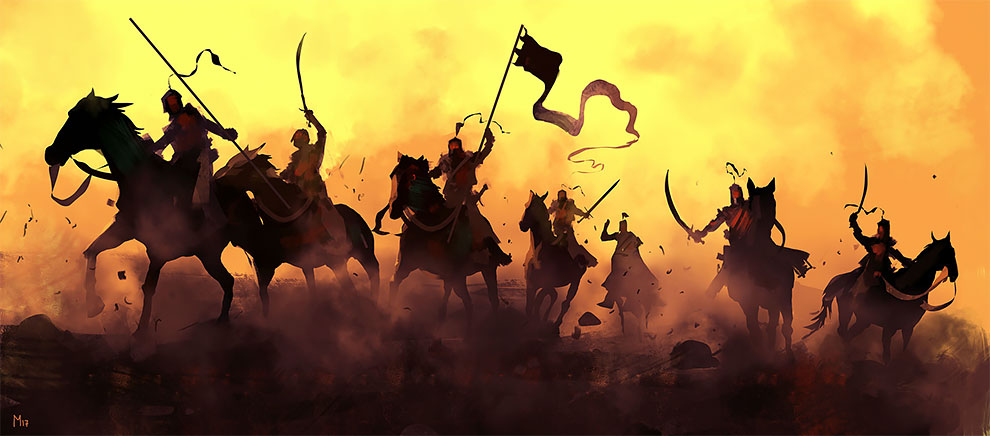
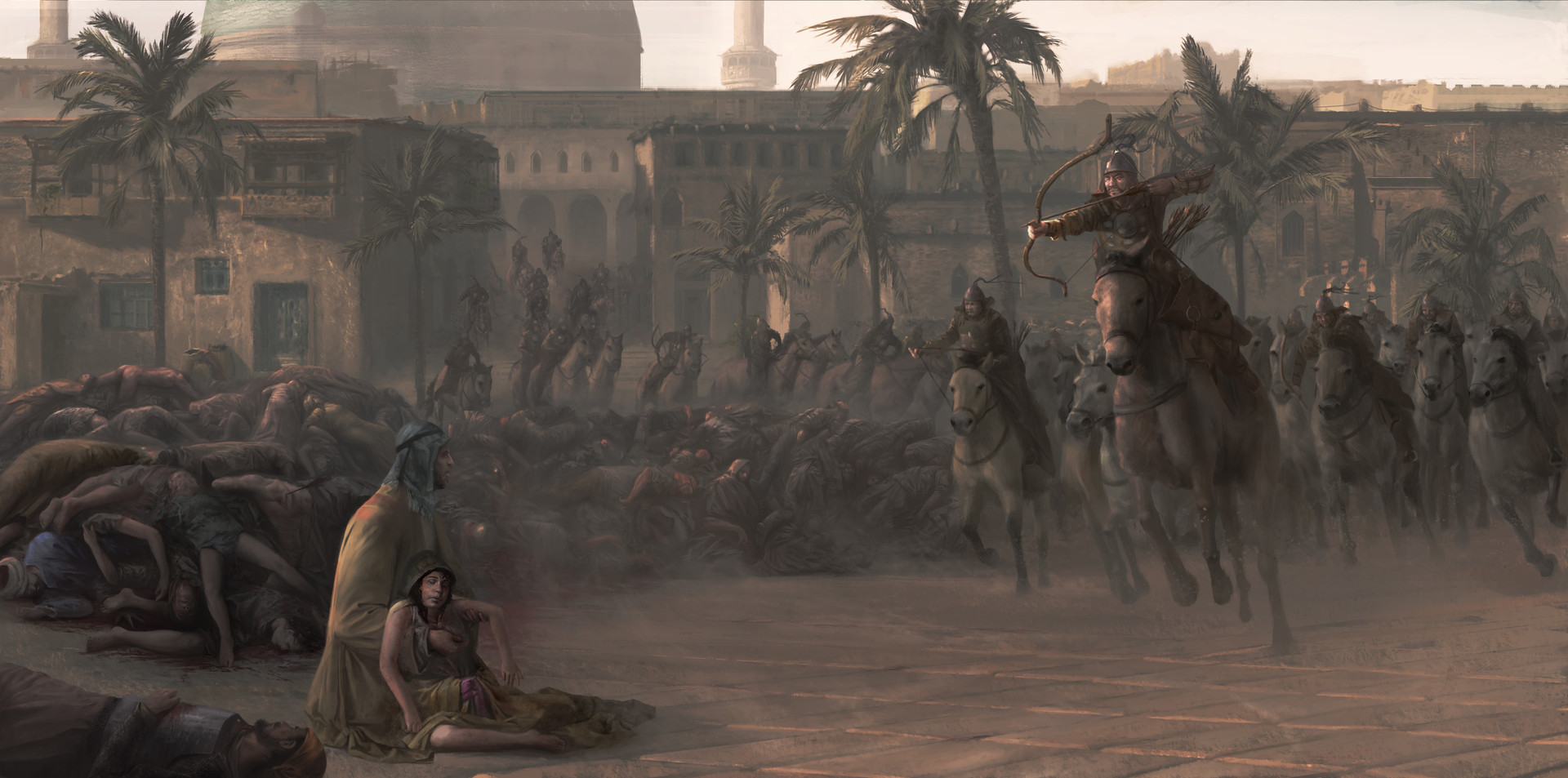

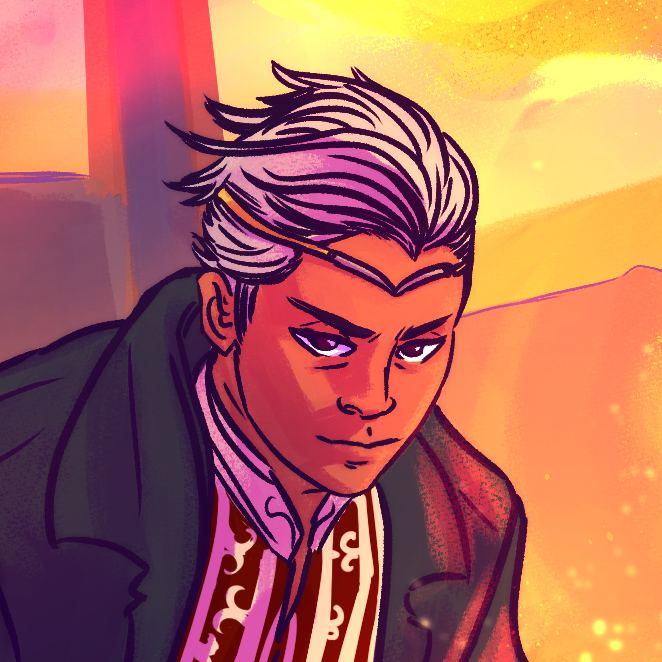
Great ethnicity article. I especially like the bits that are looking at them from the point of view of other cultures.